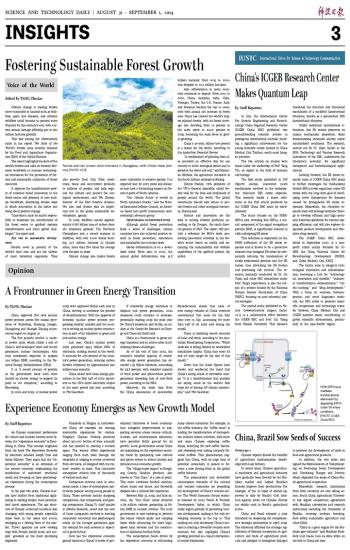
As Chinese consumers' preferences for culture and tourism become more diverse, the "experience economy" is flourishing in China. This concept originates from the book The Experience Economy by American scholars Joseph Pine and James Gilmore. They argue that the "experience economy" is an extension of the service economy, emphasizing the satisfaction of customers' emotional needs and focusing on their psychological experience during the consumption process.
In the past two years, Chinese tourists have shifted from traditional sightseeing to seeking deeper, more personalized travel experiences. The age structure of Chinese outbound tourists is also changing, with young people, especially those born in the 1990s and 2000s, emerging as a driving force of the market. Travel agencies are now viewing trips with friends, family tours, and couples' getaways as the most promising segments.
Vineyards in Ningxia in northwestern China, for example, are creating memorable experiences for visitors. Ningxia's Chateau Hedong produces about 250,000 bottles of wine annually and has excelled in creating a tourism space. The winery offers experiences ranging from train rides through the vineyards to lodging in rooms converted from old trains, all designed with the visitors' comfort in mind. This innovative atmosphere attracts tens of thousands of visitors each year.
Companion services cater to emotional needs, a type of consumption particularly popular among young people in China. These services include shopping companions, chat companions, and gaming companions. Zhang Yi, chief analyst at iiMedia Research, noted that the core of these companion services is meeting consumers' emotional and psychological needs. As the younger generation ages, the demand for such services is expected to grow further.
How has the experience economy gained traction in China? A series of government initiatives to boost consumption, alongside improvements in supporting services across various cultural, tourism, and entertainment industries, have provided fertile ground for its growth. Local governments across China are capitalizing on the experience economy trend by sponsoring new cultural and sports events to attract tourists and stimulate local economic growth.
The "village super league" in Rongjiang County, Guizhou province, also known as "Cun Chao," is a case in point. This event combines football matches, ethnic music and dance, and fireworks displays into a carnival-like experience.
Between May 13, 2023, and June 30, 2024, the "Cun Chao" series attracted 11.69 million visitors, generating 13 billion RMB in tourism revenue. The local government is now investing in projects like leisure vehicle parks and camping bases while advocating for more high-speed train services and the construction of additional football fields.
The consumption boom driven by the experience economy is influencing many related industries. For example, in the coffee industry, the "coffee craze" is leading the transformation of metropolitan culinary leisure activities, with more and more Chinese exploring coffee shops, searching for new coffee flavors, and obsessing over tasting uniquely flavored coffees. This phenomenon suggests that China, with its large base of potential consumers, is poised to become a new driving force in the global coffee industry.
The personalized and diversified consumption demands of the cultural and tourism industries are propelling the development of China's tourism sector. The World Economic Forum recently released its 2024 Travel & Tourism Development Index, in which China ranks eighth globally in promoting tourism development, making it the only developing economy in the top 10. This ranking not only showcases China's success in creating a favorable tourism environment but also highlights China's growing potential as a major international tourist destination.


 Next
Next




